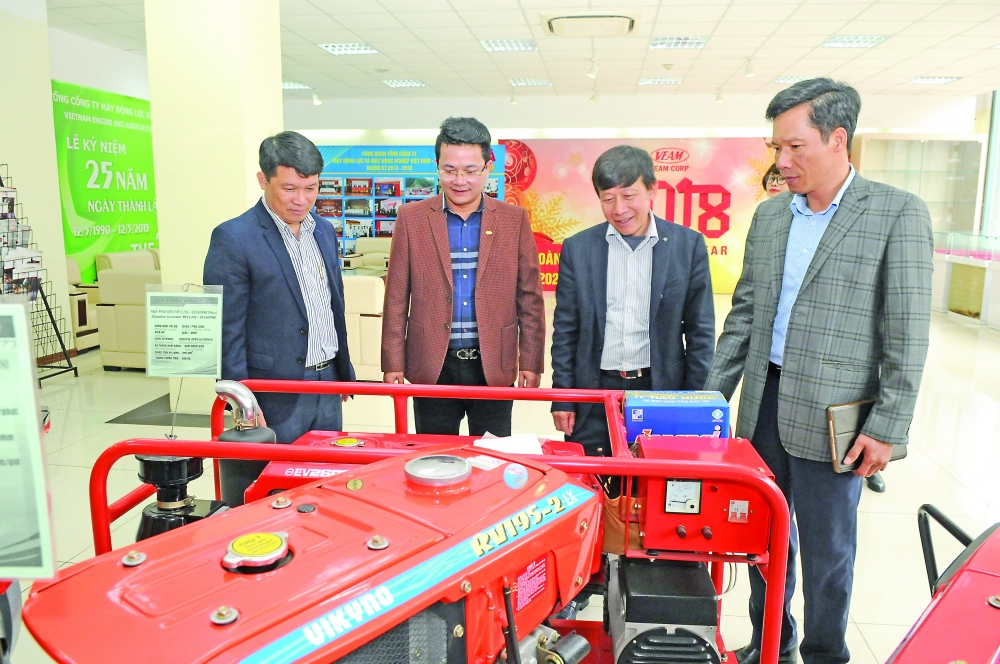- Giới thiệu
- Nhóm Công tác
- Tin tức
- Thông tin về FTA
- Tài Liệu
- Sự kiện
- Liên hệ
Vietnam seeks Japanese investment in agriculture
Japanese companies are showing great interest in Vietnamese agriculture, promising development opportunities for the domestic agricultural sector.

Rapid investment growth
A Ministry of Agriculture and Rural Development (MARD) report shows that 2,200 new agricultural businesses were registered in 2018, a rise of 12.3 percent compared with 2017. Currently, a total of 9,235 companies are operating in the agricultural sector, with registered capital averaging VND17.8 billion per company, higher than the average level of all companies nationwide (VND10.2 billion).
Major groups and companies, such as Nafoods, TH, Dabaco Vietnam, Masan, Lavifood and Doveco, have boosted investment in high-tech agriculture.
In 2018, 16 fruit, vegetable, pork and poultry processing plants with total investment of about VND8.7 trillion were built and put into operation, helping diversify and improve the quality of products. Agricultural companies have contributed significantly to boosting Vietnamese exports, at the same time generating jobs for rural workers and contributing to Vietnam’s socioeconomic development.
According to Nguyen Do Anh Tuan, Director of the MARD’s Institute of Policy and Strategy for Agriculture and Rural Development (IPSARD), Japanese investment in Vietnamese agriculture is concentrated in Ha Nam and Lam Dong provinces but remains limited. So far, Japanese companies have invested about US$240 million in Vietnamese agriculture, accounting for 0.4 percent of total Japanese investment in Vietnam. Despite these modest results, Japanese investors believe Vietnam is a potential market for high-tech agriculture development.
Great potential
Organic and processed products of high added value and high-tech farm produce hold great promise for the future of Vietnam’s agriculture.
Growing incomes in Vietnam and other ASEAN countries encourage consumers to buy high-quality agricultural products despite higher prices. This promises opportunities for Japanese companies to increase overseas investment and profit in the field of agriculture. A large number of Vietnamese students are training in the Japanese agricultural sector and will constitute an important resource for Vietnamese agriculture once they return.
Phan Van Mai, Deputy Secretary of Ben Tre Province’s Communist Party Committee, said the locality is seeking to establish an agricultural land bank to utilize vacant lots and land that has been used ineffectively. Land owners will be paid for renting out land, which will then be used effectively by other individuals and organizations.
Within five years (2014-2018), the government promulgated five resolutions on policies to encourage cooperation and linkages in producing and selling agricultural products, offering businesses investing in agriculture and rural areas various preferences and support. The new regulations focus on preferential policies and mechanisms related to land rent, tax, credit, worker training, market development and investment in infrastructure.
Tin liên quan
PSAV Attends the 30th Anniversary Celebration of Cargill Vietnam2025/10/23
Plant health management helps increase coffee yield up to 15%2025/10/16
An Giang to host 2025 OCOP forum for sustainable development2025/09/25
Viet Nam and France foster cooperation on blue economy and sustainable environment2025/09/29
Agriculture and Environment exhibition ready for National celebration2025/08/27



 Điều lệ hoạt động
Điều lệ hoạt động



















































